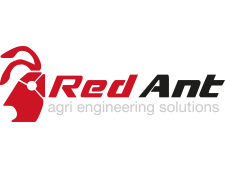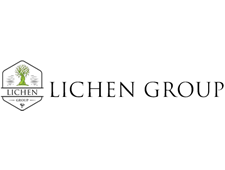PRIMOCANE CAPITAL: Blueberry Blueprint Benefits Bottom Line
Technology improvements, a professional drive for capital, and partnerships with willing investors are helping Primocane Capital to seed success in South Africa’s fertile agriculture industry, making the most of the humble blueberry. Managing Director Derek Stanford talks to Enterprise Africa about a fresh approach to farming which can be replicated continent-wide.
Derek Stanford of Primocane Capital has designed a plan to change the way African agriculture projects are funded and organised. For too long has this undervalued and misunderstood asset class been neglected. The chartered accountant has built a team alongside brother Ted – an experienced farmer with skill from multiple international markets – and, by redefining risk in agriculture through the implementation of technology, Primocane Capital has grown a blueprint for successful farming operations.
Cyanococcus or blue gold is where the company starts. Blueberries are one of the most in-demand fruits globally thanks to a renewed understanding of the health benefits they deliver. Packed with antioxidants, fibre, anthocyanidins, vitamins and minerals, blueberries were one of the first foods to gain the label of superfood. This caused consumers to rush for the punnets in markets all over the world, and this helps maintain a strong price.
For Derek Stanford, the opportunity was clear. In 2017, he went about putting his experience in the global financial sector to use in his new working home in South Africa’s agricultural heartland.
“I grew up on a farm with my brother. My father, grandfather, uncles and aunts are all involved in farming so it’s in our DNA,” he tells Enterprise Africa. “I saw the opportunity to bring my skills and knowledge into a relatively unstructured, ops focussed industry. Agriculture requires you to be more intensively focussed on ops. Cashflow planning, budgeting, raising capital, dealing with those who provide the capital for you to execute operations is often undervalued. Banks do not offer this service, they just offer the money.
“I started doing odd jobs for guys in the agri space in the Western Cape; consulting, and helping them to raise debt with the banks, restructuring their reporting so the banks like what they see. Drafting a strategy so the banks can see what is happening is very helpful. Typically, a farmer would just call the bank and ask for millions of Rand. It doesn’t work like that anymore. Banks want to see full business cases, models and a risk profile.
“I embarked on an opportunity to create an investment opportunity for high-net-worth individuals. It was a 100-hectare blueberry farm in the Western Cape. I tried to raise small sums of capital, but it didn’t really work. There wasn’t a clear strategy and there wasn’t an actual farm. The plan was more about taking money and expanding an agri business. The best advice I got was ‘offer something that is real’. I put something together – I found a farm, put a team together, and set a budget. We needed R200 million and asked people if they wanted to get involved. Learning along the way, we managed to get three high-net-worth individuals from Johannesburg to back us in late 2019.”
That initial project in Wolseley – Strathbreede Berries – paved the way for Primocane to grow. Demonstrating its case to investors and stakeholders, this project highlighted a new, modern, tech driven, low cost, low risk approach to African agriculture. The team cleared a 115-hectare former pear and plum farm to make way for development of an intensive 85-hectare blueberry farm that will employ more than 2500 people. The first phase saw 23 hectares planted out with prime blueberry bushes in coir peat substrate pots, under 300,000m2 of shade netting and using 130,000kg of steel hoops and legs. Extensive irrigation piping connects each growing area to a brand new, state-of-the-art pumphouse. Taking just five months, this was one of the fastest high-spec blueberry farm developments ever completed in Southern Africa.
FLOURISHING FARM
“We have been building the farm ever since, and we have been strategically exploring other opportunities after landing our first deal. People started asking questions about us and showing interest in what we are doing,” says Stanford.
These questions lead to an unexpected partnership, but one which has planted Primocane Capital under the spotlight. While the company was outwardly searching for financial investment from private capital, Stanford and team were also on the hunt for corporate partnerships. Interestingly, one of the biggest in southern Africa’s mining sector came forward with an open mind.
Pan African Resources, London and Johannesburg listed gold miner, was looking for opportunities to bolster its ESG (environmental, social, governance) credentials.
“ESG is the hot topic if you want to appeal to investors,” details Stanford, who spent many years working with E&Y in New York. “We hosted them on our farms in the Western Cape and they were very impressed with the level of advancement, the technology, and the jobs we are creating. It was exactly what they were looking for. In Barberton, they had excess land, water and labour. The mine attracts those employed there as well as their families. There was a need to create employment outside of the mining industry and so we came with the proposal of a blueberry farm on their excess land in the area. They pulled the trigger very quickly.”
Primocane went about establishing a 15-hectare site at a cost of R40 million. Going forward, an additional 50-hectares of land has been made available for second and third phase developments. Eventually, 800 employment opportunities will be created during the harvest season. Barberton has limited opportunities away from gold mining and both Pan African Resources and Primocane Capital are excited about diversifying the exports of the region. In 2022, 300 tonnes of blueberries will be ready to be sent out to markets around the world.
“On that piece of land there was absolutely nothing,” remembers Stanford. “Usually, we buy farms that have staff and have operations and we convert them over to blueberry farms. It’s easier to roll out as everything is in place. In Barberton, it’s been challenging and it has been tough to execute on. Working with a giant like Pan African Resources, where they have procurement policies and paperwork, is different for us but it is essential and forms part of good ESG. Good corporate governance is really important in business and we are proud to say that we have stuck to all the governance expectations in place in Pan African Resources; it’s a very exciting project and we believe it is a way to shift the strategy around how these things are done.”
Primocane handles all operational aspects on the farm including hiring managers, training them up, training staff, and ensuring profitability. The important consideration for the company was long-term sustainability – could a blueberry farm make a profit here? Or would it require ongoing investment from the mine?
“As much as we focus on project profitability, we do share the same objectives with of mine, job creation, local economic development and sustainable use of natural resources.
“We have been doing it for years and we know how to structure good teams on the ground. The feedback from the community is very positive and very rewarding. When I visit the farm, I leave feeling emotional and proud as we can see the difference it is making.
“When we visit, we see the energy and the will to work. If you sit doing nothing for years, you lose motivation and purpose but now that there is this hope, it adds energy into the air. It’s been incredibly rewarding,” details Stanford.
In the early stages, media outlets and government quickly started asking questions about the project. Why is a gold miner getting into blueberry farming, where is the money coming from, and what is happening on site? Recently, the Department of Mineral Resources and Energy was hosted on site in Mpumalanga and, after the success of the project became clear, new questions came rolling in, but the main query was simple for Stanford – how did Primocane get this right?
“The answer is simple,” he smiles. “You need the right operators who buy into your strategy and know how to deliver, and you need capital.
“The mine has provided us with capital, and we have the skills to execute and operate. The beneficiaries are those who are gaining employment, those who are gaining contracts, and that is what makes the difference. We can grow and leverage our skills, and we can gain more projects and achieve scale, buying power and efficiencies. We feel this will be the blueprint for larger corporates to review how they are doing this.”
The relationship building expertise, financial and investment opportunity knowledge, agricultural industry proficiency, and favourable market conditions have created a perfect environment for Primocane Capital. Now, with involvement from a big name like Pan African Resources, the stage is set for bumper growth and Stanford is ambitious.
AFRICAN AGRI EXPANSION
“Africa as a continent is screaming for growth and investment but the challenge is getting those who have their hands on the capital and the authority to approve these investments to not just see risk,” he says. “The ability to understand the risk and manage it properly is essential. Yes, different jurisdictions have different risk profiles but mostly, Africa south of the equator shares a very similar risk structures.”
Across the continent, where mining is a major industry – receiving massive investment each year – there will always be opportunities for mobilisation of unused land. Primocane now has a proposal which can quickly and easily be recreated as long as capital and commitment can flow.
“We use the land as a tool to generate growth and opportunity. That is the difference,” says Stanford. “We are not there to hold and own land. I would lease land from a community – no problem. We have seen how land that has been redistributed to communities but without skills and capital has gone unused. Without skills and capital you cannot do anything. It’s what you do with the land and how you do it that drives value.
“We are hoping that we can leverage this opportunity with the mine. We are a young business but we have the right dynamic among the leaders in our business to really scale up and make the most of the opportunities we are given. We are hoping to gain exposure and appeal to corporates that want to invest. It’s very easy – provide the funding and we will do absolutely everything.”
In Africa, agriculture is everything. Reports suggest that two thirds of the continent’s working population are employed in the agri sector with figures ranging from 30-60% of GDP coming from the industry across the different nations. But the important challenge is attracting investment to continue growing. Estimates suggest only around 6% of Africa’s land is occupied by crops.
By scaling this industry you gain inevitable and guaranteed outcomes of prosperity for communities, food security for those in need, and job creation where employment opportunities are scarce. In order to scale, Primocane is utilising technology and helping to drive African agriculture into the future.
“We’ve seen how we can control so much more of the typical movable parts of agriculture, typically seen as uncontrollable risks, hence the negative outlook that investors give agriculture. What they’re missing is the point that introducing technology takes control of the risks,” explains Stanford.
“My task is to educate those in the capital markets. Many high-net-worth individuals have built massive companies but they don’t know what goes on in agriculture. When the penny drops, the capital flows.
“I am pro investment into primary agriculture as without that primary industry that generates value for the rest of the chain, the whole value would collapse or not even exist. If you don’t encourage investment in agriculture – literally where we grow what humans require to exist – we would be nothing. It’s about understanding how important the source of the value chain is,” he adds.
By utilising principles of hydroponic farming, Primocane hopes to improve yield and quality while also growing blueberries with superior taste. Typically, blueberry plants benefit from lots of sunshine, well-drained acidic soil, and temperature consistency. Job creation comes as the berries ripen at different stages and require several checks to ensure optimum collection as they move from pale green to dark blue.
Hydroponic farming involves the use of soil free, nutrient rich water feeding. It is already proven as a sustainable farming method with many installations, goring many different crops now active around the world. There are enormous benefits including the need for fewer resources, higher yields, quicker growth, the ability to locate a farm almost anywhere, and the ease of troubleshooting, reduced soil degradation, and water conservation.
“The dynamic of farming is changing through technology implementation, and that has been quick over the past few years. My father comes to the farm and sees what we have done and he wishes he had access to the type of opportunities that we are looking at.
“During harvest 80% of people employed at the Barberton site are local women. It takes around eight months to build a blueberry farm, then it takes around 12 months to bring it into production. Currently, we have three farms, and we are consulting on a fourth. By 2024, all of our current farms will be full production, with expansion plans in place. Across the country we will have created 3500 jobs,” details Stanford.
INDUSTRY BLUE
Now is a great time for development of exports in the blueberry industry. The USA is the world’s largest producer of blueberries with farms all over the country. But a combination of global warming-based weather disasters and the Covid-19 pandemic decimated some farmers crops in 2020. With fewer pickers available to harvest, and frost and drought reducing volumes and size – especially in the state of Maine where natural rather than cultivated blueberries are common – American farmers are concerned. This shortfall from a key region in the industry will leave gaps in global supply chains as supermarket buyers vie for stock. Stanford is keen for Southern Africa to step up.
“The one industry that has remained strong during Covid is agriculture where we have seen growth rather than decline. It’s a robust and resilient industry which has been overlooked for too long and we are putting it back on the map as a credible asset class for investors to look at.
“We are exploring opportunities in Zimbabwe, so we see that there is demand for the services we offer, but the biggest hurdle when we review opportunities is always access to capital.
“We want to appeal to government and larger institutional investors as these funders wait to see what private does. We are slowly getting to the point where it is working and we are now hosting political leaders on the farm in Barberton as they are interested in learning how we are making it work. We are building a solution to a big problem,” he says.
Barberton is now the perfect demonstration for investors and institutions. It is an advert for South Africa, and an example for agriculture. A tech-based approach, with profitability as a core focus, will be the modern farming model. According to the UN, food production needs to grow by 70% by 2050 in order to meet demand from a swelling global population. With just 1% of commercial lending going into agriculture in Africa, changes are required.
Primocane Capital and Stanford have the model. Now is the time for scale and the bearing of fruit.
“It’s a magic industry, I completely back it and believe in its potential. A personal goal of mine is to ensure I educate influential people on how important this industry is globally.
“We pride ourselves on getting things done. I am very excited about the future and we firmly believe there is not anyway that we cannot succeed,” he concludes.



